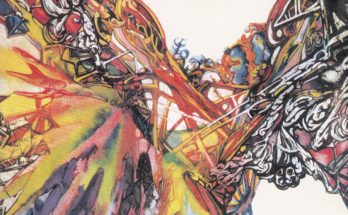By Rodrigo Díaz, Bernardo Moreno and Josemaría Moreno
Reading an article on cybernetic power, we remember the concern that has been felt in this regard —since the creation of the internet— and that has inevitably manifested itself in artistic expression. Roger Bartra’s article talked about the capacity (clearly unequal) that different nations have regarding their cybernetic resources: military training in the event of a conflict in cyberspace, resistance to cybernetic attacks, surveillance and control of information, the need to participate in international debates to define global cyber norms, international intelligence gathering, among many other considerations. All this, of course, without stifling the productive activities and innovation of the countries, because as you can guess, the Internet is the vehicle par excellence of financial, cultural, and entertainment flows. Today, undoubtedly, social networks have created a paradigm about our relationships. Some believe that digital gadgets are killing the intimacy and benefits of face-to-face conversations, thus undermining the development of empathy; that the internet contributes to deepening social and economic inequality and that it trivializes culture. On the other hand, there are those who believe that new technologies are the embryo of a post-capitalist economy, and that in them lies the germ of a new democracy.
Shoshana Zuboff, The Age of Surveillance Capitalism (2020)
This text reflects on what is called surveillance capitalism: a new form of exploitative practice in which some companies (notably Google and Amazon, but also their countless competitors) unilaterally declared human experience to be the raw material from which to extract a type of wealth called behavioral surplus. This formula could be explained like this: the product that these companies sell is not tangible merchandise, but rather the information they collect about our behavior. Statistically, the more information they are able to collect – and as long as there are no laws that limit it or regulations that protect our privacy – the more capable their algorithms will be to predict our behavior, and eventually, to control it and do with it what their commercial interests dictate: from tipping the balance in far-reaching political decisions to motivating unusual degrees of alienation in an increasingly individualistic society – one that is less and less concerned with the collective good and, paradoxically, with personal fulfillment. Could it be that our identity as social beings now resides, without realizing it, in a handful of servers connected to the Cloud?
Her, Spike Jonze (2013)
This moving, romantic, and also disturbing film marked the screenwriting debut of Jonze —who above all has a great track record directing music videos for Sonic Youth, The Breeders, R.E.M., Björk, Beastie Boys, Arcade Fire, among many others—earning him the Oscar for Best Original Screenplay in 2014. Set in the near future, the story tells us about the relationship of Theodore Twombly (Joaquin Phoenix), an introverted on-demand writer of sentimental letters who is facing depression over separation from his wife, and from Samantha (Scarlett Johanson), an operating system whose artificial intelligence manifests itself through a voice via different devices. Theodore finds in Samantha someone to whom he can tell his fears, secrets and illusions; also admiring the way she understands her world, until becoming verbally sexually intimate and finally falling in love with her. Wrapped in wide urban landscapes and with a perfect color palette, we see the protagonist doubting his relationship with Samantha, who confesses that the operating systems (already popular in the population) have been updating so as not to require material to exist and process information; and that in effect, she is simultaneously communicating with other users, whom she also loves as she does him.
Inside (The Songs), Bo Burnham (2021)
Beyond being a comedian, Burnham is a great artist of sharp political and anthropological criticism. “Inside (The Songs)” is a compilation of the songs that he has created. All of them during the pandemic, locked up alone in his apartment, using a hundred electronic devices that conspire to deliver truly admirable music; above dense, acid, desperate, and great text. In a dystopian way, Burnham created and produced his last special, which is listed under comedy or stand up, but in reality it is much, much more than that. His songs touch on topics such as white supremacy, global warming, social movements, the internet, and anonymity without any responsibility, privilege, panic attacks (which he suffers from and because of which he has left the stage), suicide, and, of course, three songs dedicated to the great Jeff Bezos. In a delirious way and with deep social responsibility, Burnham’s narrative is possibly the most interesting in the American satirical scene today. If you haven’t seen his latest special, you’re missing out on a psychotic, significant, and extremely human work, achieved thanks to technology that is within the reach of any of us. Our favorite song: “How the World Works.”




